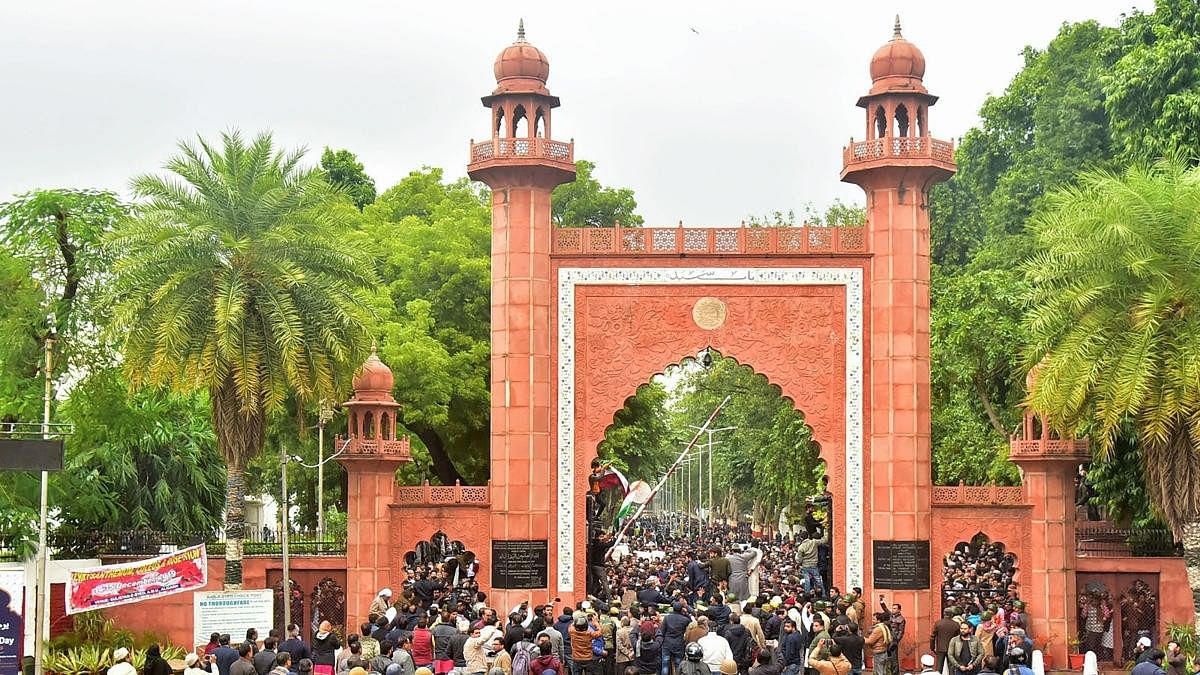
Aligarh Muslim University (AMU).
Credit: PTI Photo
New Delhi: The Supreme Court on Friday by a majority view overruled the 1967 judgement in Azeez Basha case which formed the basis for denuding Aligarh Muslim University of its minority character in view of its creation by a statute.
A seven-judge bench led by Chief Justice of India D Y Chandrachud by the majority view of 4:3 held that a minority institution can be established by the minority and may not necessarily be administered by the minority members.
The CJI, who authored the majority view, also held the minority character of the institute is not lost due to its creation by the statute.
It said an institution cannot be denied minority status just because it has been established by a parliamentary legislation. Various other factors surrounding such establishment and other aspects ought to be taken into account, it added.
"The circumstances surrounding the conversion of a teaching college to a teaching university must be viewed to identify if the minority character of the institution was surrendered upon the conversion. The court may on a holistic reading of the statutory provisions relating to the administrative set-up of the educational institution deduce if the minority character or the purpose of establishment was relinquished upon incorporation," the bench said.
The court said it is also not necessary to prove that the administration of a minority institution lies with such minority group. The test is whether the institution exudes minority character and operates in the interest of minority.
It also said minority institutions may wish to emphasise secular education and for that minority members are not needed in administration.
In its decision, the bench said, "Religious or linguistic minorities must prove that they established the educational institution for the community to be a minority educational institution for the purposes of Article 30(1); The right guaranteed by Article 30(1) is applicable to universities established before the commencement of the Constitution," the bench said.
The court also said the right under Article 30(1) is guaranteed to minorities as defined upon the commencement of the Constitution.
"A different right-bearing group cannot be identified for institutions established before the adoption of the Constitution," the bench said.
Justices Sanjiv Khanna, J B Pardiwala and Manoj Misra endorsed the judgment by the CJI.
Justices Surya Kant, and Dipankar Datta gave their dissenting opinions.
Justice Satish Chandra Sharma, however, clarified his is separate view and is neither assenting or dissenting judgment.
The bench overruled the view taken in Azeez Basha that an educational institution is not established by a minority if it derives its legal character through a statute.
With the pronouncement of judgment, the issue of AMU's minority status is now left to be decided by a regular bench based on the principles laid down here, the bench said.
In 1967, a five-judge constitution bench in S Azeez Basha versus Union of India case held that since AMU was a central university, it cannot be considered a minority institution.
In 1981, its minority status was restored when Parliament passed the AMU (Amendment) Act. In January 2006, the Allahabad High Court struck down the provision of the 1981 law by which the university was accorded the minority status.
The reference to the seven-judge was made in 1981 by a two-Judge bench of this court in Anjuman-e-Rahmaniya Vs District Inspector of Schools, which was faced with a question of whether VMHS Rehmania Inter College is a minority educational institution. By an order on November 26, 1981, the bench questioned the correctness of Azeez Basha and referred the matter to a bench of seven judges.
The majority judgment held the reference in Anjuman-e-Rahmaniya of the correctness of the decision in Azeez Basha was valid.
